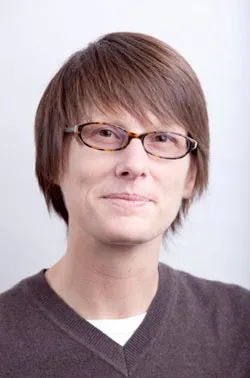Mary Gray

Beyond the "Online/Offline" Binary: Queering the Boundaries of Young People's Public Spaces in the Rural United States
Drawing on her experiences working for close to two years in rural parts of Kentucky and in small towns along its borders, Mary will map out how lesbian, gay, bisexual, trans and questioning (LGBTQ) youth and their allies make use of digital media and local resources to combat the marginalization they contend with in their own communities as well as the erasure they face in popular representations of gay and lesbian life and the agendas of national gay and lesbian advocacy groups. Against a backdrop of an increasingly impoverished and privatized rural America LGBTQ youth and their allies visibly - and often vibrantly - work the boundaries of the public spaces available to them. This talk will explore how youth suture together high schools, public libraries, town hall meetings, churches, and websites that construct spaces for fashioning their emerging queer identities. Their triumphs and travails defy clear distinctions often drawn between online and offline or rural and urban experiences of identity, fundamentally redefining our understanding of the term 'queer visibility' and its political stakes.
Monday, November 30, 2009
4:30 p.m.
Science Center 101
Mary L. Gray is an Assistant Professor in the Department of Communication and Culture at Indiana University, Bloomington. Her research looks at how everyday uses of media shape people's
understandings and expressions of their social identities. She is the author of In Your Face: Stories from the Lives of Queer Youth (1999). Her most recent book, Out in the Country: Youth, Media, and Queer Visibility in Rural America (NYU Press) examines how young people in rural parts of the United States fashion queer senses of gender and sexual identity and the role that media - particularly the internet - play in their lives and political work.



